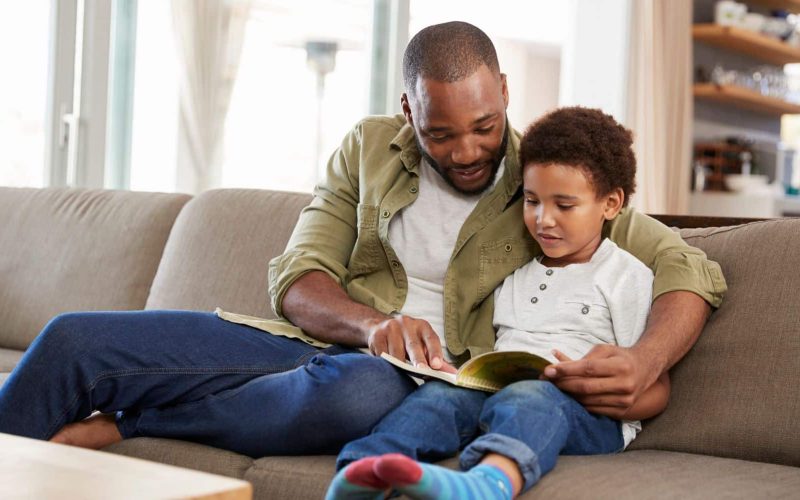Reading is an essential life skill. Of course, children can learn to read at school, but why do I consider shared reading at home so important? The following are purely my opinions.
However, there are numerous studies that promote the importance of reading to children, reading to them from an early age and reading aloud.
Children will learn at their own pace and I don’t advocate forcing children to learn. It’s our job as parents to provide learning opportunities and promote reading for pleasure. I really think it helps to read to them from a young age.
The Bookstore Programme recommend reading to our children as early as when they are babies. Studies have shown that talking to a baby whilst in utero actually has a positive effect on the baby too. I guess it’s never too early to start.
I love reading with my daughter (and I’ve started to read to my son too). It’s great to see her develop from a listener to a reader. The main reason I read to them is its quality time together (minus the technology).
Here are 7 reasons;
Children who read regularly have effective use of and increased vocabulary
A varied vocabulary and correct use of terms are so important for their learning through school and as they grow into adults, interacting with different sets of people from different backgrounds and integrating into the workplace.
Reading regularly helps develop the imagination
Children love to dress up and play make-believe. Books open up a child’s imagination to the fantastical, real life, the weird and the wonderful. Imagination is an important part of brain development. I think it’s great fun as a parent to make up stories and to encourage them to make up their own stories too.
Reading is relaxing and calming
Our environments are so busy these days with constant access to technology, media, social media and after school activities. Children need downtime too. Opening a book and reading promotes a calm and relaxed child. A moment for them to switch off and become immersed in a story.
Children who enjoy reading do better at school.
A study titled – Reading to Young Children: A Head-Start in Life by The University of Melbourne and The Department of Education and Early Childhood Development set out to investigate how parents reading to their young children is connected with their child’s later reading and other cognitive skills.
They found that the frequency of reading to children at a young age has a direct causal effect on their schooling outcomes regardless of their family background and home environment.
Reading improves concentration
To read a book and understand the concept, the story, the characters and the scene takes concentration.
Children who read for pleasure are better readers
This sounds like a no brainer. But practice makes perfect. A study by Organisation for Economic Co-operation and Development (OECD) conducted a study called ‘Reading For Change’ in 2000.
They stated ‘Those who express positive attitudes to reading, who read a variety of materials, and who spend time reading for pleasure, are on average much better readers.
The analysis also indicates that reading engagement can to some extent compensate for disadvantage in students’ social background’.
Reading aloud
With children is a great activity to do together. It doesn’t cost anything. It can be done inside on a rainy day or in the park on a sunny day. You can find your inner child as you growl and roar with the characters.
Jim Trelease wrote a million-copy bestseller, The Read-Aloud Handbook, in 1982. He has travelled worldwide, advocating the benefits of reading aloud to children.
This may be an old report but its findings are still valid. In 1985, Becoming a Nation of Readers highlighted these as their primary findings:
The single most important activity for building the knowledge required for eventual success in reading is reading aloud to children.
The more you read, the better you get at it; the better you get at it, the more you like it; and the more you like it, the more you do it.
The more you read, the more you know; and the more you know, the smarter you grow.





